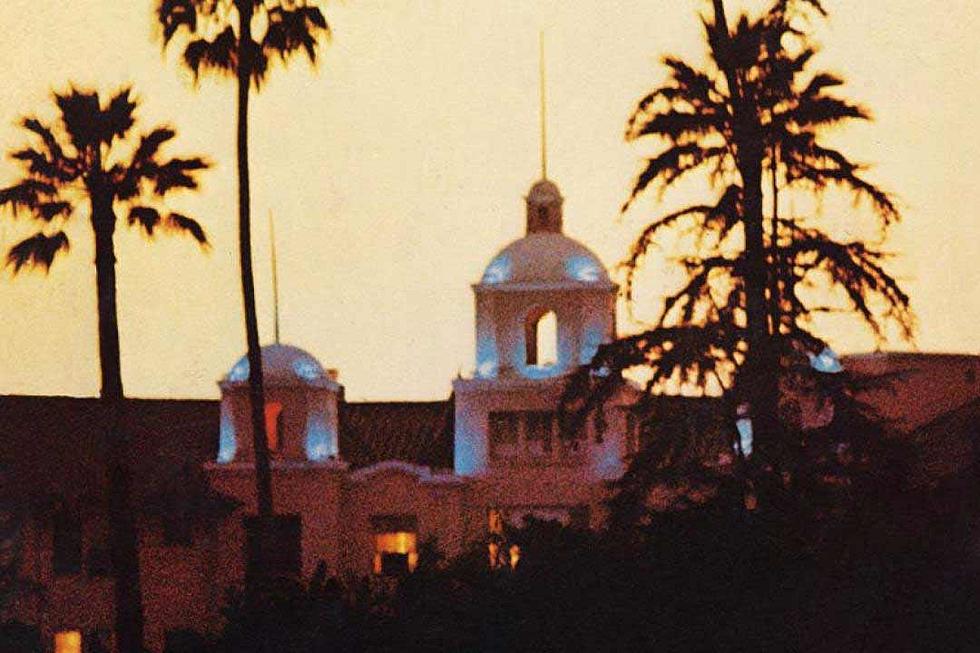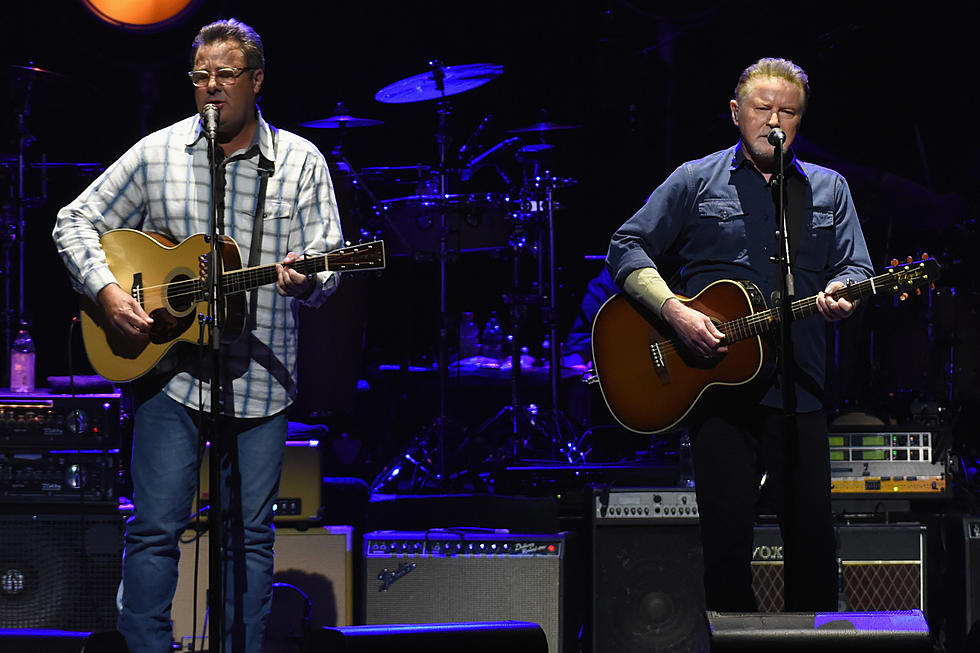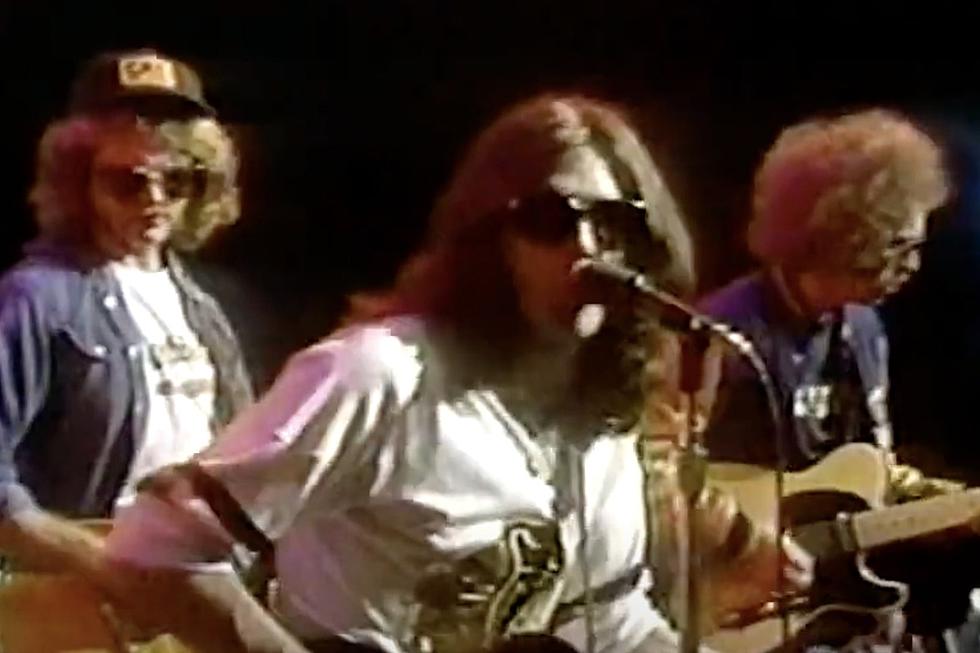
How Eagles Peaked Exploring Paradise Lost on ‘Hotel California’
Hotel California, the Eagles' layered and frank meditation on the price of fame, is a reflection of where they were in life in the mid-'70s. The band was beset by the trappings of celebrity, wrestling with personal issues, moving toward a harder-edged sound, slowly falling apart – and all of that can be found deep in the grooves of their best album.
They got there by looking with steely focus into “the darker side of paradise – sort of what we were experiencing in Los Angeles at that time," the late Glenn Frey once said. There were powerful forces at play, including – but not limited to – stardom, cocaine, egos, love lives and a small fortune.
All of it went into Hotel California, which produced two consecutive No. 1 singles in the Frey-sung "New Kid in Town" and the title track. "Life in the Fast Lane," which drew the most direct line from their current excesses to their newly formed art, also reached the Top 20.
“We were getting an extensive education – in life, in love, in business," Don Henley said in 2004's To the Limit: The Untold Story of the Eagles. "Beverly Hills was still a mythical place to us. In that sense it became something of a symbol, and the ‘Hotel’ the locus of all that L.A. had come to mean for us. In a sentence, I’d sum it up as the end of the innocence, round one.”
Meanwhile, their sound was in a state of flux. Joe Walsh's recent arrival forever shifted the Eagles away from the rootsier influences of their early years with multi-instrumentalist Bernie Leadon – and that started here.
"One reason Leadon didn’t last in the band was that he was so contrary," Henley later remembered. "Success freaked him out a little; he was always worried about our success, about coming from a ‘pure’ bluegrass background and making it in rock ’n’ roll. He thought we were selling out from the very beginning. To me, the point was to reach as many people as possible."
Things were no more settled at home. Henley, for one, was involved in an emotionally draining relationship that emerged as a topic in both Hotel California's title track and "Wasted Time." But they were such a gifted group, with each member working at a creative peak, that the pieces somehow fell into place anyway.
Listen to the Eagles Perform 'Hotel California'
"What we did in that band, it was a very unusual circumstance to have five guys and each one brought such an abundance of talent," guitarist Don Felder said in 2012. "Everybody in that band would write, sing and play. Anyone in the Eagles could, and did, front their own band. So, it was unusual to have so much talent in one band. We took everyone’s strongest suit, in order to make the best records we could."
That concept is best understood through the prism of "Hotel California," which began as a Felder demo before being completed by Henley and Frey – and then improved upon through a striking group performance that concludes with extended guitar interplay between Felder and Walsh.
Elsewhere, the other Eagles gave Walsh room for one of his most emotional turns on "Pretty Maids All in a Row," pushed back hard against the forces that surrounded them on "Victim of Love," gave the soon-to-depart Randy Meisner a proper send-off with the beautifully lonesome "Try and Love Again" and then wrapped things up with "The Last Resort," an environmentally conscious epic.
With that, they'd completed something that represented "the zenith of the Eagles," as Frey once surmised, "in that what we had to say came together with our learning of how to make records."
Released on Dec. 8, 1976, Hotel California quickly shot to No. 1 on the Billboard album chart and was reportedly selling 500,000 copies a week at one point. More than 14 million copies later, it's one of the Top 10 best-selling albums of all time – a testament to how timelessly relatable it remains.
"People tend to think the album is about California,” Henley later noted. “But I think it was about the dark underbelly of American culture at large.” Particularly, there seems to be just as much reporting on Hotel California – real truth-telling about the band members' personal foibles – as there was narrative myth-making, and that gives the album continuing resonance.
Anyone who's ever questioned their direction in life, or that of the society around them, can find fighting words, deep thoughts and no small amount of solace here.
Top 10 Reunion Tours
Six Little-Known Eagles 'Hotel California' Facts
More From KYBB-FM / B102.7










